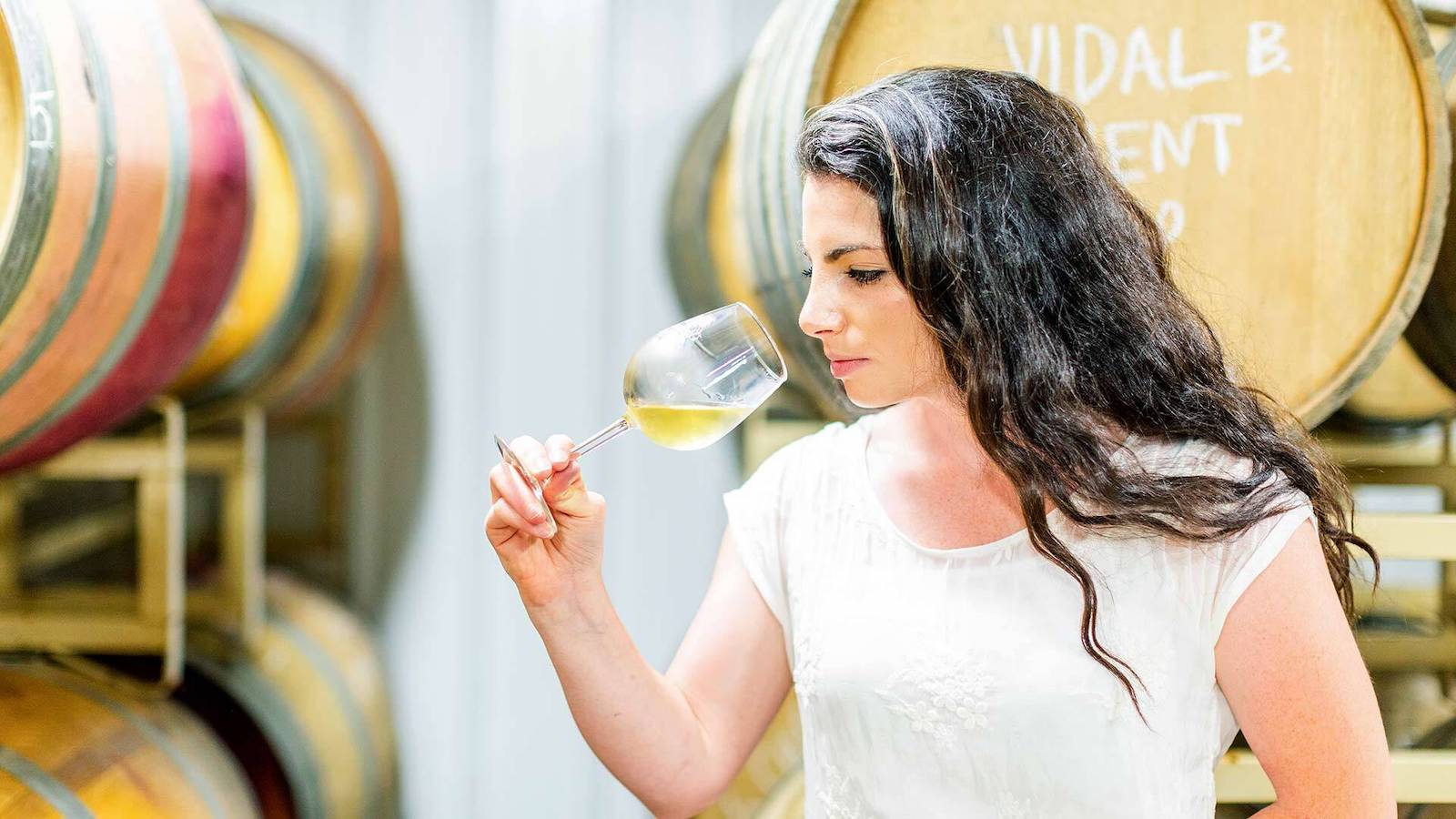Finding ‘Lost History’ in Your Glass
February 24, 2022

Alum helps continue family’s mead-making tradition, honoring Holocaust survivor and winery founder.
By Shannon Clark M.Jour. ’22 | Maryland Today
The sweetness and light of fermented honey blend with crisp flavors of Frederick County-grown apples or richly sweet grapes, evoking notes of cinnamon or honeysuckle … well, that sounds intriguing. But what is it, you might be asking?
In a country where wine frequently means well-structured (i.e. pricey) French vintages or fruity blasts from California or Australia, it’s a fair question. The answer: a different kind of wine entirely, known as mead. After a heyday hundreds (or thousands) of years ago and being relegated more recently to renaissance fairs, it’s now “on the rise,” according to Vogue.
It’s never really fallen from favor, however, in Eastern Europe, where the Loew family began crafting it more than 150 years ago, a tradition it continues today at Loew Vineyards in Mt. Airy, Md.
Rachel Loew-Lipman ‘15, winemaker and vineyard manager, is working to uphold the Loew legacy and share her family’s story through every glass of mead (or grape-based vintage) that’s poured.
“I want to reconnect people to a beautiful but lost history,” said Loew-Lipman, who graduated with degrees in plant science, horticulture and crop production and in communication.
The history that she's been piecing together from family memorabilia, handed-down stories and old press clippings begins with a family patriarch. In 1870, Meilech Loew started what the family believes was the first meadery to ship its products internationally, founded in what’s now western Ukraine, then a part of divided Poland ruled by Austria-Hungary. His son Eisig established a well-known meadery in Lviv, Ukraine (then known as Lwów by its primarily Polish-speaking residents).
The Loews’ mead-making continued as the tides of war and changing national boundaries swept repeatedly over the region—until World War II, when the business collapsed amid the Holocaust. Most of the city’s large Jewish population of some 200,000 residents, which included the Loew family, was murdered. Meilech’s grandson Wolfgang survived as a member of an underground group, and then endured a series of concentration camps before leaving Europe for the United States. Once here, he changed his name to William, went to night school to earn a degree in electrical engineering, and started a family.
Years later, ready to retire from a job as a regulatory expert at the FDA, Loew took the plunge and re-established his family’s ancestral business, founding what’s now one of Maryland’s oldest wineries. In 1986, with the help of his wife, Lois, and Philip Wagner, known at the time as the “father” of the American grape industry, he produced Loew Vineyards’ first batches of wine.
Almost 40 years later, the tradition burns strong in Loew-Lipman.
Read the full story in Maryland Today.
Photo by Jonna Michelle Photography.

